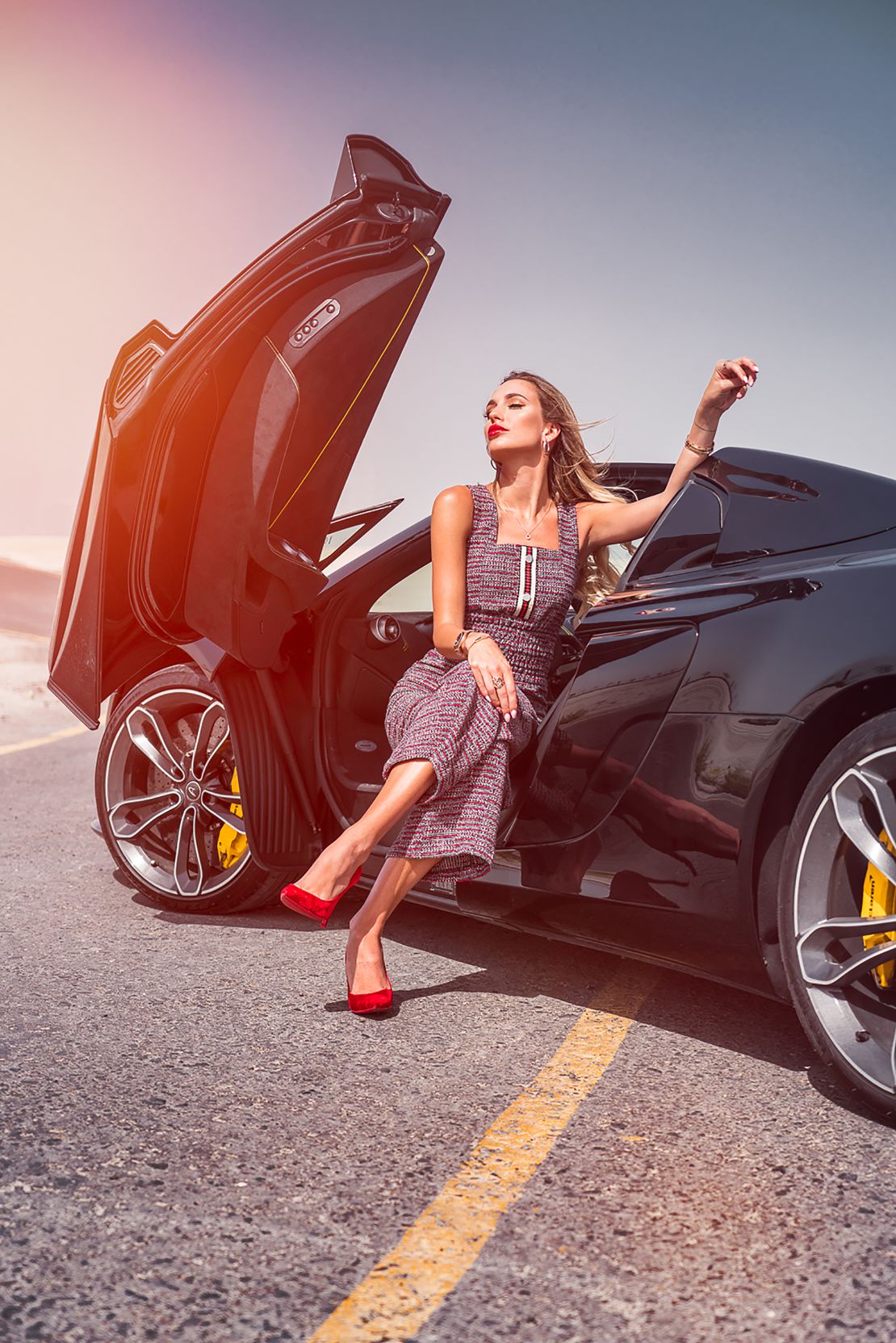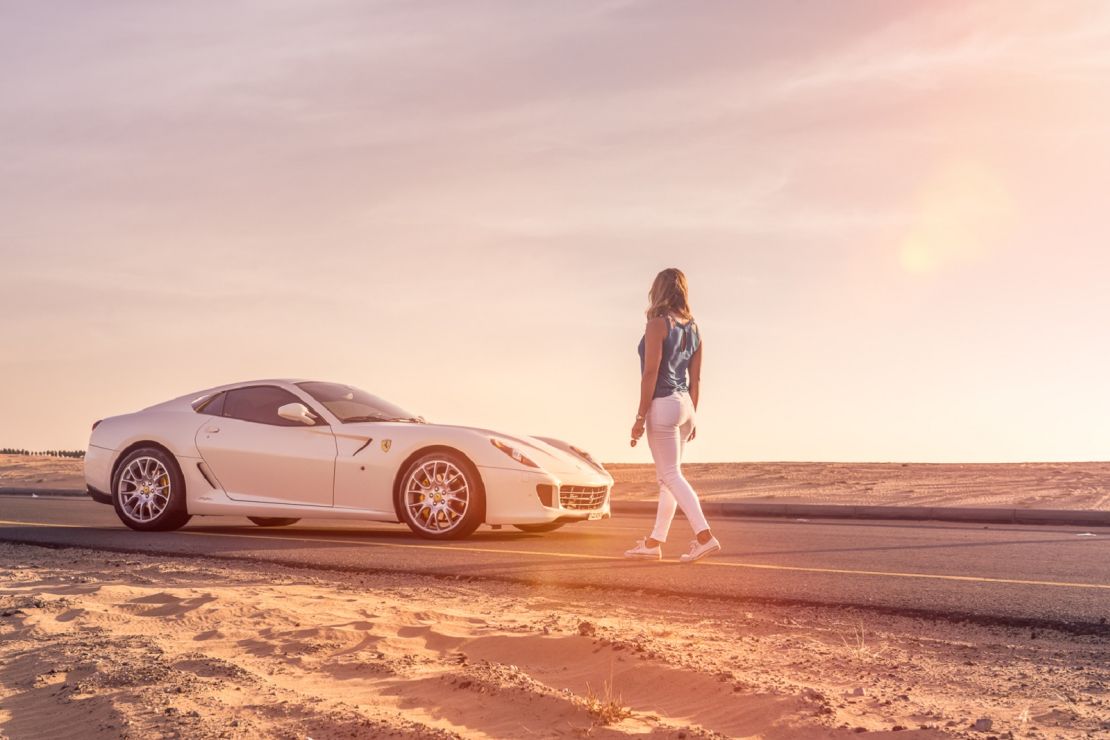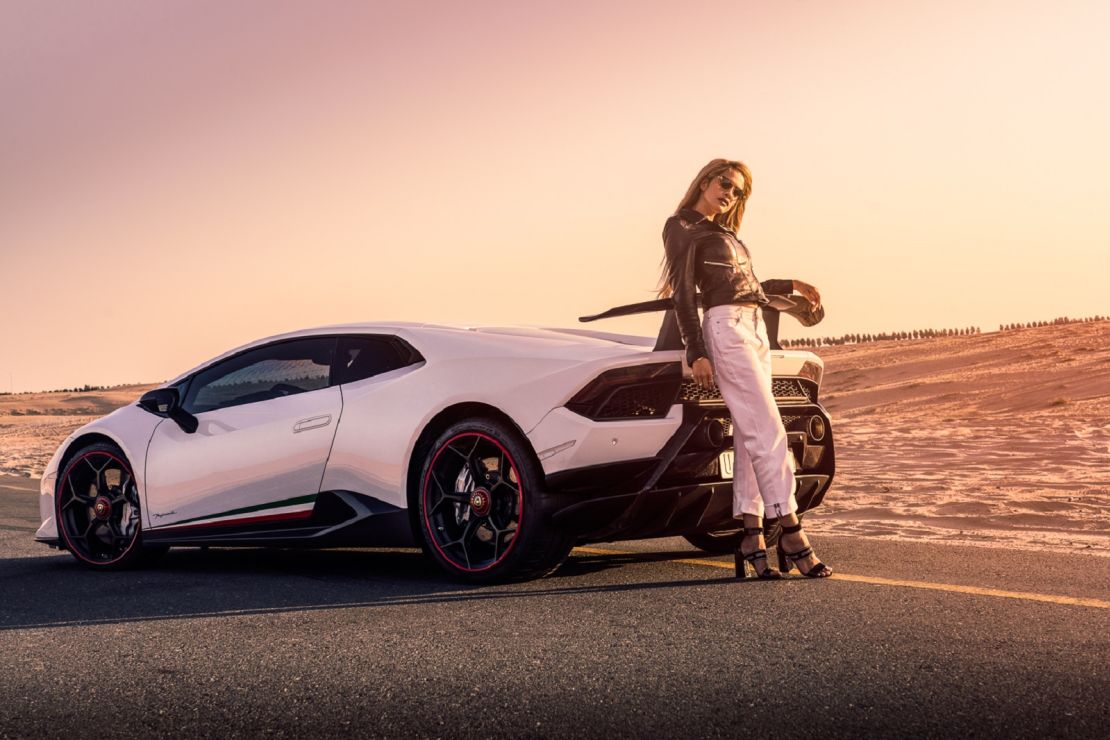Not that long ago, Hanan Mazouzi Sobati faced flagrant sexism at track days in Dubai. An ardent petrolhead, Sobati would go to drive her sports car fast – really fast – but many of the overwhelmingly male drivers couldn’t see past her gender. “They always thought I was someone else, accompanying someone. I was just there to support him, or to sit in the passenger seat,” she recalls. “(It’s) as if they didn’t see me.”
Fellow enthusiast Jalyn Jarvi echoes the sentiment. “You pull up and they expect you to be somebody’s girlfriend or wife,” she adds. “Everybody’s staring at you and it’s a little bit uncomfortable.”
“It started hitting me that not only they don’t expect you to be there, you’re not really welcome,” says Sobati. Amid the engine noise and tire smoke, an idea was sparked – one that would become the Arabian Gazelles, Dubai’s first all-female supercar club.
To many, Dubai appears an Instagram-ready vision of superstars and fast cars; an adult Disneyland of wish fulfillment where the sun always shines. “You come here to make money,” says Jarvi, an international airline captain originally from the US. “You’re here for a reason, and you might as well enjoy it.”

Jarvi grew up dreaming of owning a Porsche to roaring around the Emirates in a Ferrari 599 with 620 horsepower under the hood. Uber-wealth allows some to indulge their four-wheeled fantasies, while a desire for the latest models has given birth to a bumper used supercar market, providing opportunities for others. (One need only look at local classified ad site Dubizzle for a taste.) “Cars are 50% the prices of other major cities,” says Jarvi. “Of course I’m going buy a sports car. You’re stupid not to.”
She’s one of around 80 women from 17 nations Sobati has attracted to her banner as the founder of the Arabian Gazelles. A large percentage are business owners she says, some C-suite executives, while others are housewives. Founded two years ago, their numbers continue to grow.
Sobati has a background in the luxury industry. She was born in Algeria, living in the UK and Qatar before settling in Dubai. Ever since she was a girl playing with her brother’s toy cars, autos have been part of the picture. Her passion runs deep; twenty four years on, she describes the death of Formula One driver Ayrton Senna as “one of the worst days of my life.”

She buys her automobiles together with her husband (although she admits he’s “not much into cars”) and counts a Rolls Royce Drophead Phantom and Morgan Aero Supersport among her collection. It was while she was a member of a “99%”-male car club that she thought there must be other female car fanatics out there who would appreciate a group dynamic. “So I set out to find them,” she says.
Sobati started with a track day with two neighbors in 2016. They loved it. “After that event they either went out and bought a supercar or they started taking their husbands’ cars,” Sobati recalls, “which at some point made me the worst person at dinner parties.
“Their husbands were all scared of me, because I was the one about to corrupt their women,” she adds, laughing.
Social media spread the word. “I found the Arabian Gazelles on Instagram,” says 18-year-old member Ghala Al Ketbi, a student in international relations at Sharjah University and owner of a Porsche 911 Carrera.
The Gazelles put activities at the heart of their meets, and brands and manufacturers have sought to sponsor club events. One recent drive in association with luxury fashion retailer Moda Operandi ended in a Harper’s Bazaar Arabia feature. McLaren have sponsored track events and Michelin is lining up a workshop day for members, says the founder.

Companies know it looks good to associate with a group like the Gazelles – and there’s also opportunities to recoup costs. Sobati recalls a weekend with Ferrari test driving the $200,000+ California T with five members: “Two of them wanted the car after the weekend… I remember the CEO coming to me and saying this is the quickest return on investment ever.”
But there’s space for real impact and industry change too. BMW recently invited the Gazelles to a roundtable chat on brand perception and vehicle design – the kind of discussions “I would like to have more (of),” says Sobati. The founder also took part in a panel at the Dubai International Motor Show last November, a forum where women were previously few and far between, she says.
“I think now things are changing. People are taking notice, dealers are taking women more seriously, manufacturers are asking our opinions,” says Sobati. “I feel only now that things are moving the way we want.”
Make no bones about it, change is afoot. On June 24 Saudi Arabia will end the world’s only ban on female drivers. Saudi women have already driven with the Gazelles in the UAE, Sobati says, and when the ban is lifted the club plans to cross the border and repay the visit.
The club is a vehicle for changing perceptions, says Jarvi. “What I like to promote in the group,” she says, is the idea that “‘Hey, you can go to college and work your ass off too and buy your car. You don’t have to be the hot chick in the front right seat. You can be the hot chick in the driver’s seat.’”
Part of a new generation, Al Ketbi says her membership has piqued the interest of course mates, and some of her friends want fast cars now. “It’s a really welcoming place for car enthusiasts,” she adds. “When you see a lot of girls joining in the conversation and knowing a lot of information about cars, it just makes you feel like you belong.”














